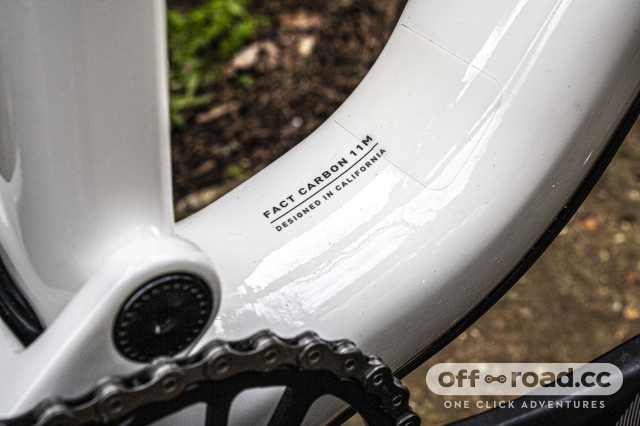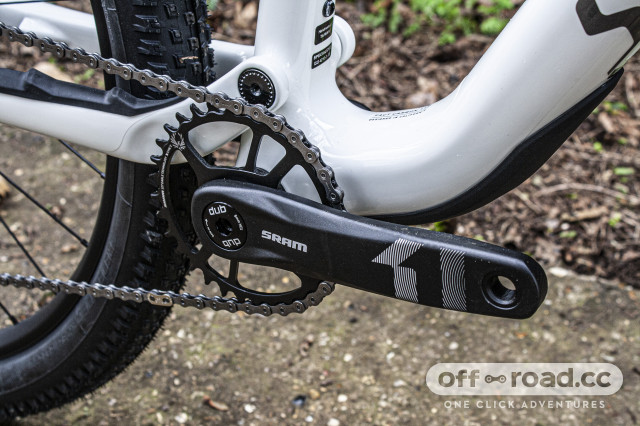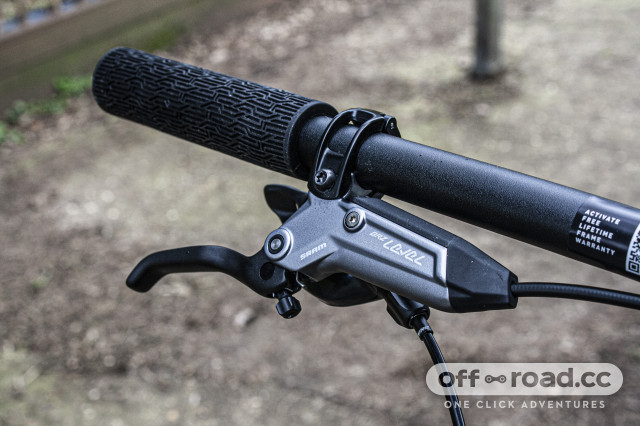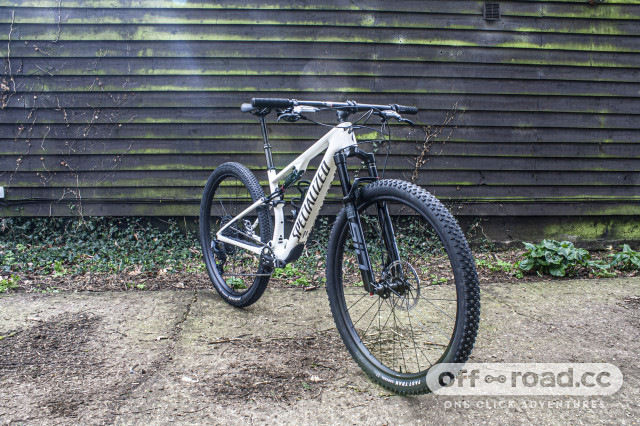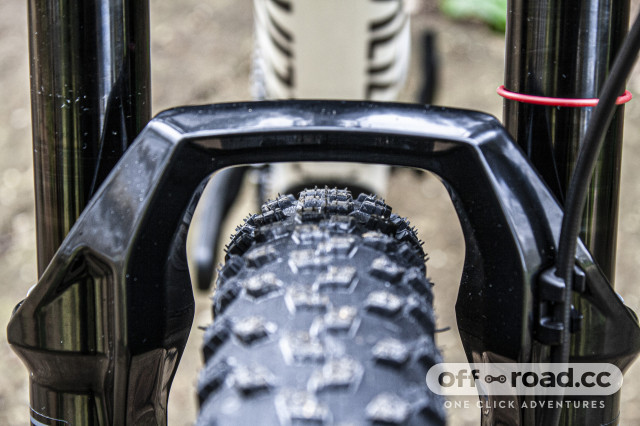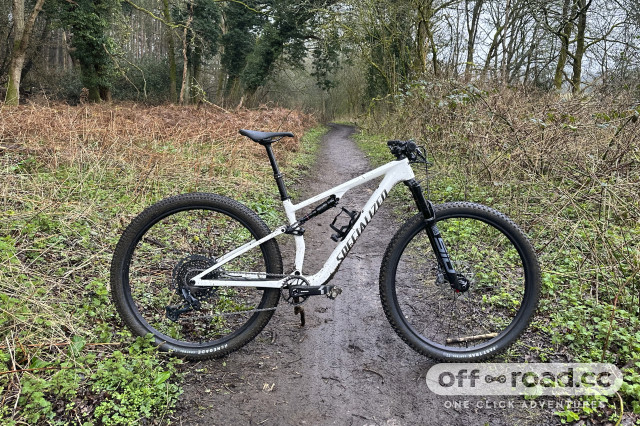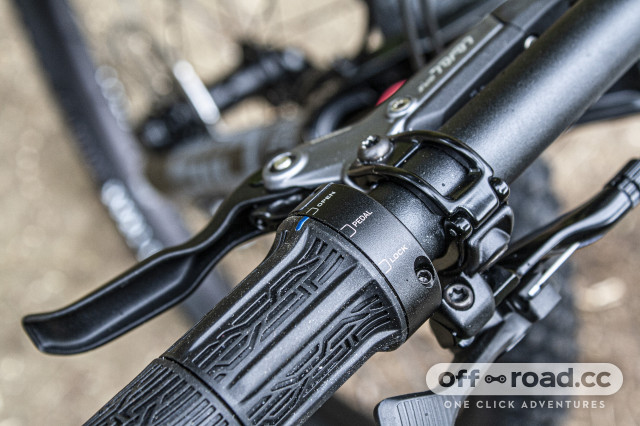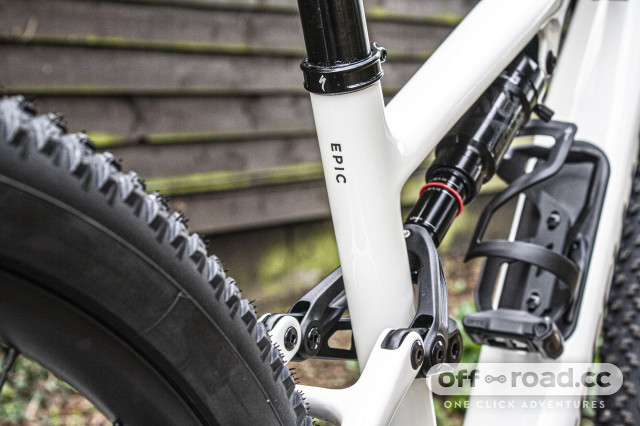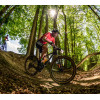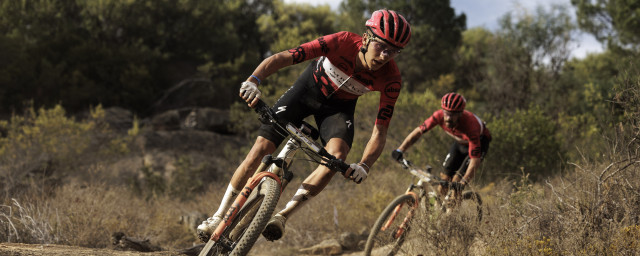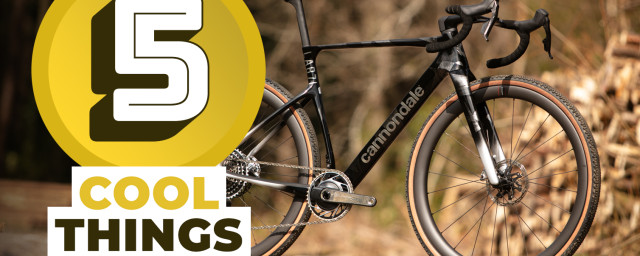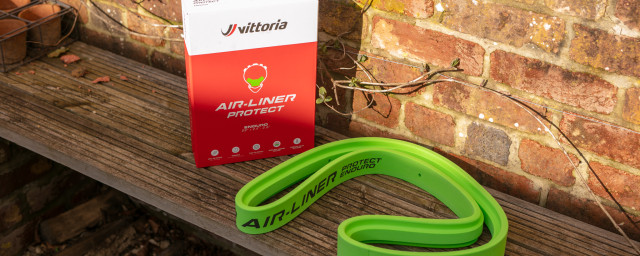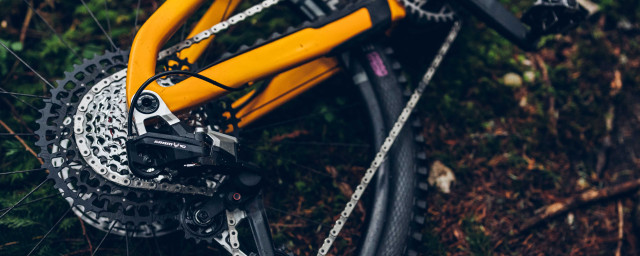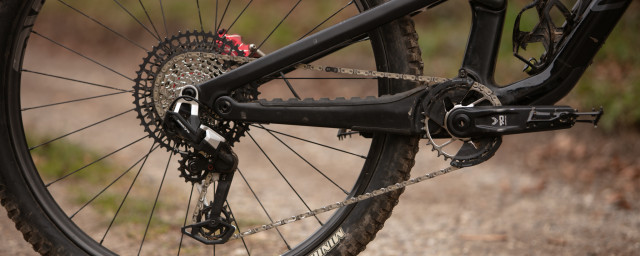2024 Specialized Epic Comp first ride review
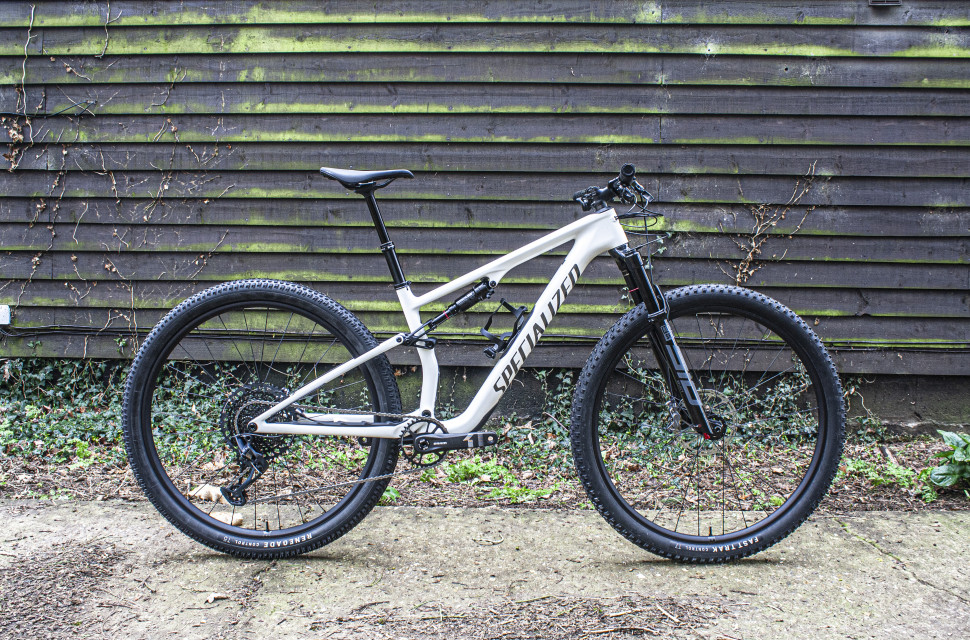
I recently spent time with the outgoing Specialized Epic Pro. I still believe it's a brilliant allrounder that can confidently jostle with the best cross-country mountain bikes currently available thanks to its sorted geometry, suspension kinematics and willingness to accelerate on all manner of surfaces. So why did Specialized feel the need to replace it? Well, the evolution and increasing demands of contemporary cross-country Olympic tracks and marathon stage races such as the Cape Epic are to blame for the constant need to evolve. And so the Specialized Epic 8 was born – a bike the Morgan Hill-based company claims is its most capable mountain bike ever produced.
- What is downcountry?
- Cross-country mountain bikes: understanding their design and geometry
- 2024 UCI Mountain Bike World Series - everything you need to know
We were given early access to the ‘entry-level’ Specialized Epic Comp to sample ahead of the official launch and managed to ride it in a variety of settings, including Specialized HQ's test track and the same Surrey Hills trails we've been using to test the outgoing Epic 7. Read on for our early verdict.
2024 Specialized Epic Comp - Technical details
The Specialized Epic 8 has big boots to fill, and the brand has gone all-out to achieve that. It's subsequently undergone a significant overhaul with the main aim of reducing weight, improving comfort and ensuring its trail ability remains as sharp as ever. As a result, the Epic 8 has been designed around a 120mm front/rear suspension configuration – that's as much as the outgoing Epic Evo.
Specialized has also made a lot of noise about the S-Works frame being 76g lighter than its forebear thanks to a new Fact 12M carbon layup and titanium hardware. We, however, don't have the range-topping S-Works model here but rather the entry-level-but-still carbon Specialized Epic Comp.
Features that remain constant throughout the new Epic 8 range, however, are the geometry numbers – namely its 66.4-degree headtube angle which is 1.1-degrees slacker than before. This figure is now more in line with the 66.5-degree head angle of the Epic Evo 7. Other numbers include a steep 75.5-degree seat angle, 475mm reach (up from 445mm) and 333mm bottom bracket height.
The Epic Comp shares the same Fact 11M carbon layup with its posher Expert and Pro compatriots. There are five sizes in the range including XS, S, M, L and XL – we're testing the medium. Four distinct models are available, namely S-Works Epic, Epic Pro, Epic Expert and Epic Comp (pictured here), not to mention an S-Works frameset. There's not a lot of variation unfortunately when it comes to colour options and prospective buyers will have to choose between white (Gloss Dune White SMK) or a satin purple hue Specialized calls Satin Metsphr WHT. White is not the most pragmatic colour choice for the UK climate but I can't dispute the clean and clinical impact this colour gives the build. It looks great.
2024 Specialized Epic Comp - Components
The Epic Comp is fitted with an impressive list of components that should sate the requirements of new and experienced riders alike. SRAM features heavily in this particular build with a 32T, 10-52T GX Eagle groupset at its heart. RockShox takes care of suspension duties with a SID Select fork and SIDLuxe Select+ shock, while braking is handled by a brace of four-piston SRAM Level Bronze Stealth calipers and 180/160mm front/rear rotors.
The Epic Comp uses a lot of alloy components that not only help keep it affordable but also aid in the durability stakes. Unfortunately, the alloys appear to be of the heavy metal variety and include a SRAM x1000 Eagle crankset, a Specialized-branded alloy cockpit, Specialized 29 alloy wheels, a Specialized Power Sport alloy rail saddle and X-Fusion Manic dropper post. The total sum of its parts has resulted in a 12kg build without pedals (weighed independently on our scale) – not the lightest cross-country bike but you don't really feel the kilos out on the trail and I'll touch on this later.
Other items included in this build is the new Swat 4.0 storage setup. This clever arrangement uses a bottle cage that doubles up as a door to a downtube compartment that can house a variety of tools and spares. Our test bike also came fitted with a multi-tool on the lower level of the bottle cage. Another neat party trick is the integrated steering stop that has been engineered to prevent the handlebar from spinning in the event of a crash and gashing the paint and carbon of the top tube – something that has plagued previous iterations of the Epic.
off.road.cc on WhatsApp
All the latest offroad cycling news, tech and buying advice straight to your phone.Follow our WhatsApp channel here
2024 Specialized Epic Comp - Performance
Despite what it says on the scale, the Epic Comp manages to make up for its portly weight when the trail starts to twist and turn. It’s here where you can maximise momentum and flatten uneven terrain and obstacles with ease. The broader 2.35in tyres are a godsend. The Fast Trak front and Renegade rear are a fast rolling yet grippy combination that allows you to push harder through tighter transitions and loose corners, granted you’ll need to get the tyre pressures just right for your riding conditions. The wider tyres did take some getting used to – even on the outgoing Epic Pro I've been riding – but the 2.35in blueprint has become normalised on the UCI Mountain Bike World Cup circuit and riders and segment times seem to be getting faster.
Even though the new Epic's geometry borders on downcountry, it still rides and behaves as an Epic should – meaning super responsive handling and immediate pedal response. Like its predecessor, the suspension kinematics are superb and have been benchmarked around reducing rider fatigue and boosting grip by way of a RockShox SID Select fork and SIDLuxe Select+ shock suspension. Specialized’s Dynamic Trio suspension setup features three settings: Wide Open, Magic Middle and Sprint-On-Lock and is actuated via a TwistLoc Ultimate grip shift system. It's super intuitive to use and harks back the SRAM Grip Shift of yore, a very nice touch indeed. I spent most of the time riding in the middle 'pedal' setting as I found it did a good job maintaining progress and soaking up bumps. It's only when things get very bumpy and technical that you'll need to use the fully open setting.
Specialized seems to have got the ratio between suspension compliance and frame stiffness right, citing a 20% reduction in pedal bob over the previous models. According to Specialized, the Epic 8 absorbs 12% more bump and vibration forces than before, which should see it excel at multi-day stage races such as the Cape Epic where terrain fatigue management is of the utmost importance. While claims of this nature are hard to quantify, the bike does feel very plush and doesn’t wallow under load.
The wheels, while alloy units, are outstanding, too. They’re stiff and durable and, in this application, serve their purpose adequately. That said, the rear hub could be more responsive to pedal inputs as I found the engagement of the rear hub pretty tardy if I'm honest. Perhaps I'm being overly critical here – especially having ridden the bike back-to-back against the outgoing Epic Pro, which employs posher carbon Roval Control wheels and a DT Swiss ratchet.
It’s good to see mechanical shifting still being employed. In this particular build, it’s reliable and bulletproof and can be abused when you’ve misjudged a climb and need to shift aggressively under load. I've used SRAM GX Eagle in various guises since 2017 and it continues to impress me with its sharp and precise shifting. The 32T chainring and 10-52T cassette represent a sweet spot and supply a good spread of gearing. Considering the bike's 12kg weight, anything more than a 32T ring up front would make for arduous pedalling up hills or drags of any degree.
The best component in my opinion is SRAM Level BRZ Stealth brakes. They are just superb. Featuring a four-piston internal assembly, they offer a crisp bite and modulation of the highest order. The precision and power of this arrangement allow you to brake later and carry more speed through corners, not to mention maximise grip on the front wheel when trail braking.
Despite all the good points, of which there are many, it’s very hard to ignore the elephant in the room – the Epic Comp’s weight. At 12kg (11.7kg claimed), this isn't what you’d expect from a carbon cross-country mountain bike, regardless of its price point. While it detracts from an otherwise phenomenal package, it's worth noting that it's still not the heaviest carbon bike on this end of the price spectrum.
2024 Specialized Epic Comp - Early verdict
At £4,250, there aren’t many cross-country mountain bikes that offer as much bang for buck as the Specialized Epic Comp – it signifies just a £250 increase over the outgoing model. I believe the Epic Comp will be the volume seller for Specialized and possesses the traits to steal market share from its rivals. Not only is the range well covered in terms of pricing and specification, but the modifications carried out to its frame have resulted in one of the most capable mountain bikes currently available.
In terms of rivals, the Specialized Epic Comp goes head-to-head against bikes such as the £3,780 Trek Supercaliber SL 9.6 Gen 2. It might be cheaper but it's significantly heavier at 13.1kg and you could argue it features slightly cheaper components, too. There's also the £4,100 Merida Ninety-Six 6000, which is pretty closely matched in price. It tips the scales at 12.68kg which is over 600g heavier than the Comp and features Shimano components and a mixture of RockShox and Fox suspension bits. Mondraker's F-Podium Carbon is another top choice in this segment. At £5,000, it's rather pricey considering its 12.4kg weight but the mix of Fox and SRAM hardware places it almost on level peggings with the Epic Comp. Ultimately, the choice is yours but Epic Comp starts to look like a pretty impressive proposition in comparison and not as heavy as we initially thought.
You won't be upfront jostling for the win at a cross-country or marathon mountain bike race with this particular Epic Comp build – it's just too heavy to be competitive between the tape but this build wasn't designed for top-level racing, the Pro and S-Works fulfil that role. The Epic Comp will find favour with newer riders looking to upgrade to a carbon-framed bike with heritage, and the capability and technical prowess of its posher compatriots. It really is a superb bike – it rides better than its predecessor and will bring newfound confidence and descending speed to the trails.
You might also like:
- 10 worst bits of mountain bike riding advice I’ve been given by randoms
- Nine cheapskate alternatives to proper cycling products
- Five ways to survive winter riding if you hate mud
